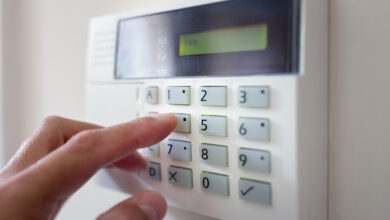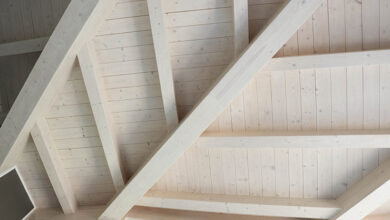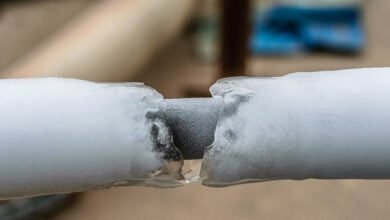How to damp proof your home

Damp is a common concern for many homeowners. If left unchecked, damp can not only make your home look aesthetically unappealing but can also cause some pretty serious structural damage to your property. Damp damage can show up inside your home as peeling and flaking wall paint, plaster that crumbles, or rotting skirting boards. All these problems can have a big impact on your home life, making your rooms unsightly and uncomfortable spaces to spend time in.
Nobody wants to be faced with the nasty effects of damp, especially during the winter when we spend more time snuggled up indoors. Here are some helpful tips on how to safely damp-proof your home, as well as how to stop damp spreading if it’s already found its way in!
Do you need to damp proof your home this winter? Find a local damp proofing specialist on Rated People.
What causes damp?
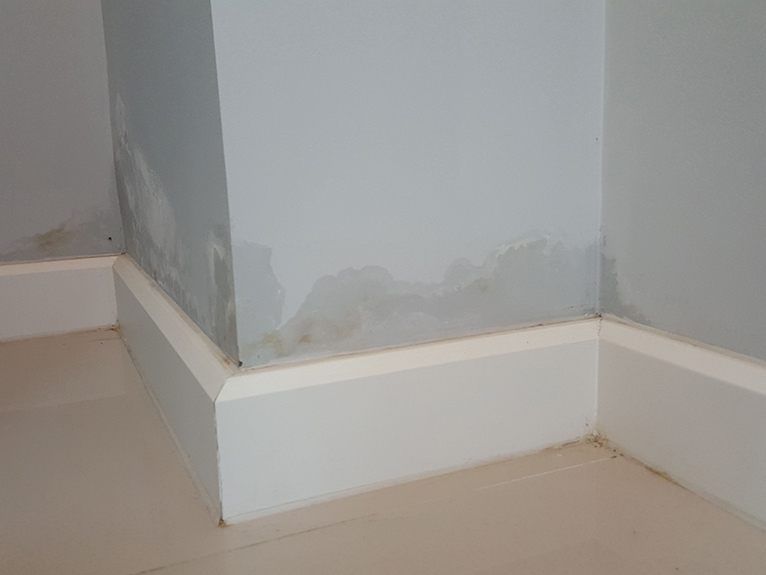
Damp in your walls is a real pain for millions of homeowners – once it gets in it can ruin your interior furnishings and leave a horrible, musty smell. Wall damp is caused by several things, including:
- Condensation
- Roof issues
- Leaky gutters
- Rainwater seeping in
- Cavity wall insulation
- Faulty downpipes
Damp proof membranes
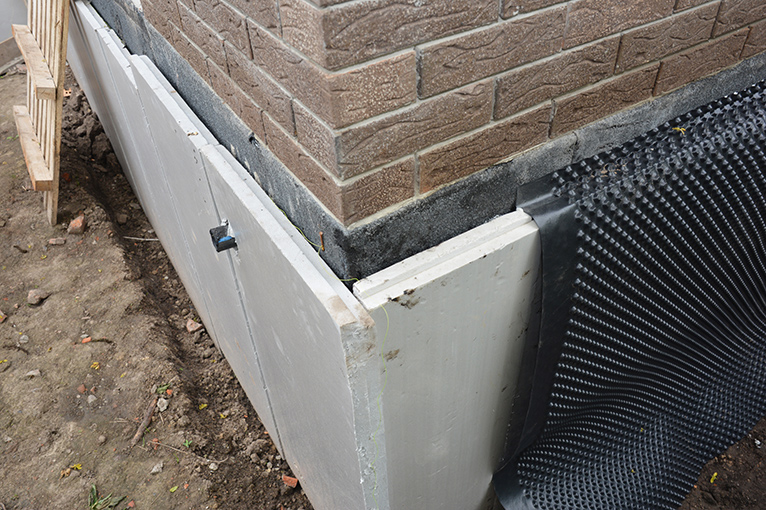
You can damp proof your walls in a few different ways. Damp proof membranes are one great way – they are made of Polyethylene and can’t absorb moisture or salt. They can be fitted into your walls to create an airgap that allows moisture to escape behind the walls.
A professional tradesperson can fit them using specialist equipment.
Damp-proof paint
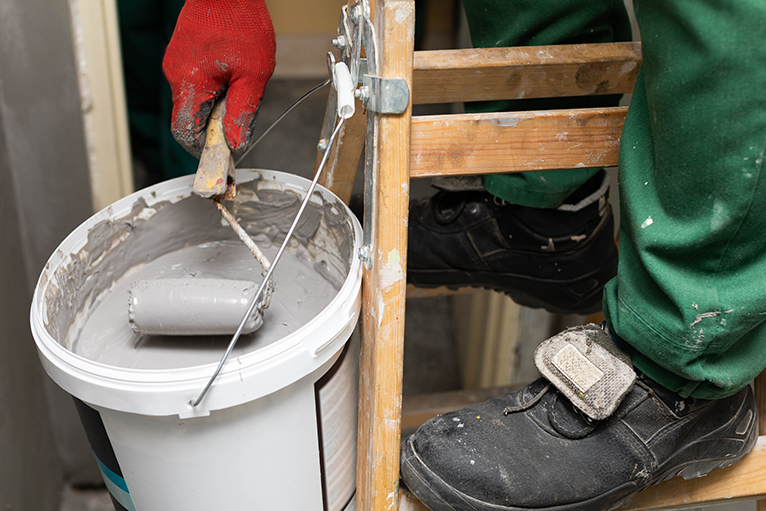
Another great way to damp proof your home is by using special damp-proof paint. This paint can be purchased online or in most DIY stores.
It can be applied directly to a plaster surface, but better results are achieved if the paint is applied to the background substrate of your walls (background substrate is the final layer of material placed onto a wall before it’s covered with plaster or rendering).
A professional painter and decorator can help make sure your damp-proof wall paint is applied correctly.
How to avoid damp walls
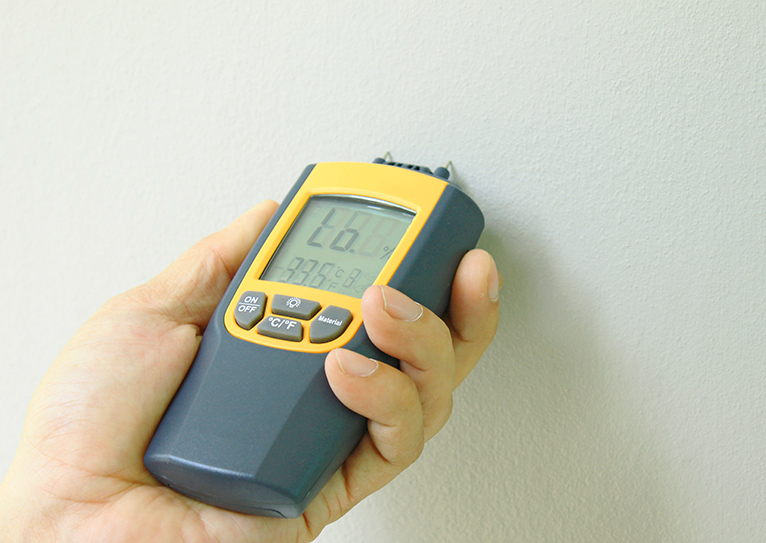
Prevention is key when it comes to avoiding damp issues, especially in the walls of your home.
Here are some of the best ways you can take action to stop damp in its tracks:
- Insulation – Not only is insulation the master of keeping you toasty indoors, it’s also great at fighting damp caused by condensation. This is because both internal and external insulation warms up your walls making it harder for water vapour to get trapped on them. Condensation is caused by a surface, such as a wall, being colder than the water vapour. Discover more helpful advice on home insulation at how to insulate your home for winter.
- Ventilation – Making sure you ventilate your home, even during the winter, can really help to ward off damp. Whilst opening windows may seem daunting when temperatures drop, you can do other things to make sure your home is properly ventilated like using an extraction fan when cooking and showering. You can also make sure your furniture isn’t touching your walls to encourage air to circulate in the space.
Read more about how you can prevent damp in your home in our five-part guide to damp problems.
Want to avoid damp in your home? Find a professional damp specialist on Rated People.
Check your drainage system
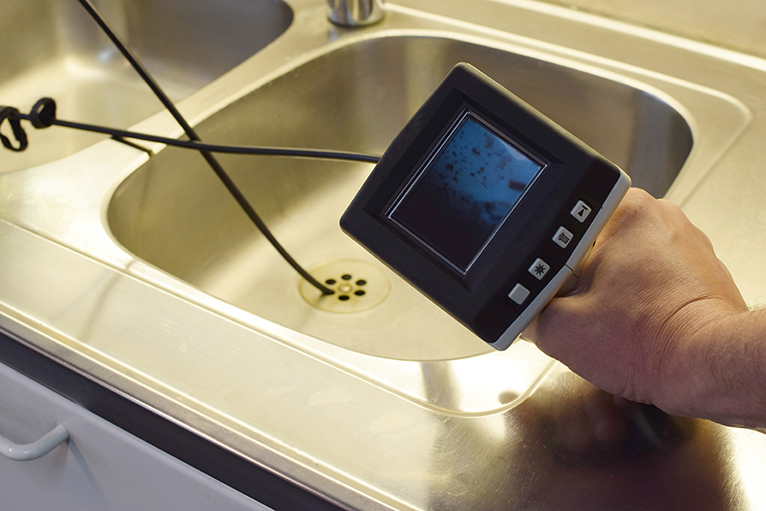
Problems with drainage systems like leaky pipes can let water seep into your home and cause damp.
If you’re in the process of building a new home, the great news is you can make sure the tradespeople working on your home install a top-quality drainage system to help avoid damp right from the start.
And if your home is completed and you’ve spotted damp, or simply want to know what you can do to make sure you don’t face any issues in the future, you can have a plumber check your drainage system to make sure there aren’t any blockages, leaks, or damaged pipes.
Need to check your home drainage system? Find a local, skilled plumber on Rated People.
